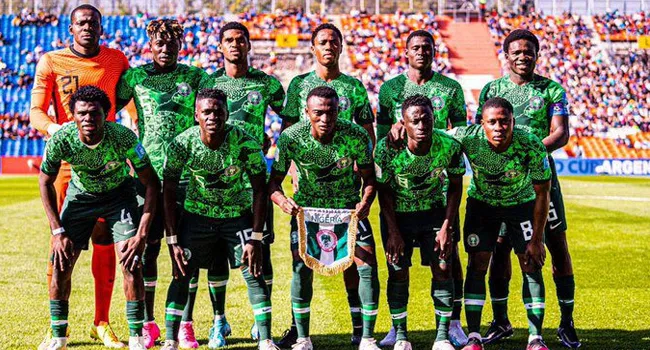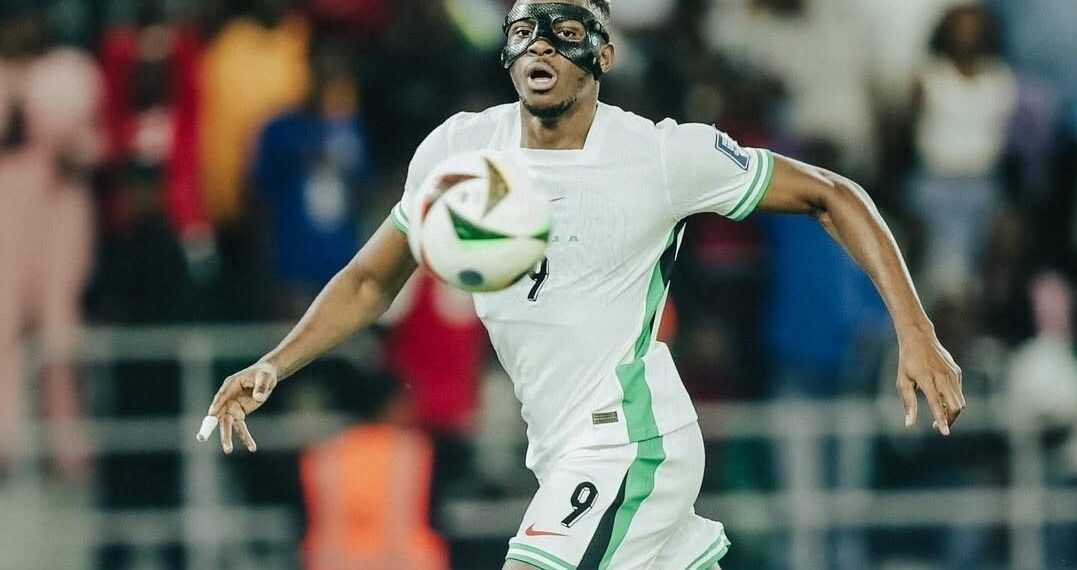For many Nigerians, watching the FIFA U-20 World Cup is more than just supporting a football team—it’s gathering at local viewing centres, sharing banter with friends, and believing in youthful potential on the global stage. But hopes were dashed for the Flying Eagles as their journey at the 2025 edition in Chile ended abruptly, suffering a tough 4–0 loss to a formidable Argentina side in the round of 16 in Santiago. The heavy defeat left fans in Nigeria and across West Africa searching for answers, comparing past glories to present struggles.
Argentina’s young stars, continuing the nation’s illustrious football tradition, left little room for error as they capitalised on every opportunity. According to match reports and live analysis by pundits, the South Americans displayed a ruthlessness and confidence that defined their emphatic victory—two strikes in each half left the Flying Eagles unable to find their footing. The defeat stirs memories of past meetings between the teams, with both nations previously clashing in pivotal youth tournaments, each producing dramatic storylines for supporters from Lagos to Buenos Aires.
The match’s tone was set almost immediately. Alejo Sarco, finding space inside the box, capitalised on a low cross from Dylan Gorosito—Nigeria’s goalkeeper Ebenezar Harcourt was left helpless as the early goal stunned both the players and fans. “That first-minute goal changed everything for us,” said Lagos-based football journalist Tunde Onasanya, referencing the psychological impact of conceding so early. Argentina’s pressing and movement unsettled the Flying Eagles, and they failed to re-establish their composure throughout the opening quarter.
It wasn’t long before the Young Albiceleste doubled their advantage. Maher Carrizo, already a standout performer during the tournament, stepped up for a free-kick at the edge of the penalty area. With precision, he curled the ball around the wall into the bottom-right corner, giving Harcourt no chance and putting Argentina firmly in control. Statistics from the FIFA U-20 tournament indicate that Argentina maintained over 60% ball possession in the first half, pressing Nigeria into defensive errors and forcing the West African side into rushed clearances and misplaced passes.
Despite these difficulties, the Flying Eagles almost found a lifeline before halftime. Midfielder Daniel Daga expertly chested down a loose ball in the box and unleashed a strong volley. Yet, Argentina’s goalkeeper Santino Barbi, demonstrating why he is rated among top young keepers in South America, stretched out a hand to push the ball away—a moment that drew applause from neutrals and sighs of frustration from Nigerian supporters.
After the break, there was little sign of an Argentine slowdown. Their tactical discipline and sharp transitions in attack were on full display, reflecting the influence of coach Diego Placente, himself a former youth international. Argentina’s third goal arrived after Milton Delgado’s high pressing forced a mistake from Nigeria’s midfield. Delgado stripped Daga of the ball and threaded a through-pass to Carrizo, who finished calmly past Harcourt. This goal secured a two-goal cushion and reinforced Argentina’s dominance, as confirmed by post-match analyses from international sports networks.
With about an hour played, the situation deteriorated further for the Flying Eagles. Defender Mateo Silvetti received a crossfield pass in space, skillfully beat his marker Daniel Bameyi, and placed the ball beyond Harcourt’s reach into the far corner—a fourth goal that summed up Nigeria’s defensive struggles in the match. According to data from previous U-20 World Cup campaigns, Nigeria has rarely conceded four goals in a knockout match, underscoring the magnitude of Argentina’s attacking display.
Coach Aliyu Zubairu attempted to stem the tide with a flurry of substitutions, bringing on the likes of Abduljelil Kamaldeen, Auwal Ibrahim, and Charles Agada in hopes of sparking a comeback. But despite small improvements in possession, the attacking flow never materialised into real threats. “We lacked composure in the final third and allowed Argentina to dictate play,” noted ex-international and Super Eagles legend Garba Lawal, speaking with a Kano State sports radio station after the match.
Nigeria did produce a few late chances—Kparobo Arierhi and Haruna Aliyu found themselves in promising positions, but again, the finishing touch was missing. Argentine discipline in defence and excellent goalkeeping ensured Nigeria’s efforts went unrewarded.
Argentina’s game management in the final stages highlighted the gap between themselves and their opponents. They completed nearly twice as many passes as Nigeria and maintained control of the game, rarely looking threatened as they eased into the quarter-finals. According to South American football expert Santiago Alvarez, “Argentina showed a maturity beyond their years, keeping the ball and only attacking when opportunities were truly on.”
For the Flying Eagles, the second half also brought frustration in the form of yellow cards—Nasiru Salihu and Emmanuel Ekele were both booked. Nigeria briefly hoped for a penalty following a VAR review, but the referee’s on-field decision was upheld and appeals were dismissed. “It just wasn’t our night,” said Zubairu at the post-match conference, hinting at disappointment but vowing to come back stronger.
Yet within the disappointing scoreline, there were still glimpses of talent and courage. Midfielders like Daga and winger Maigana tried to spark momentum, displaying flashes of their technical ability, but lapses in organisation and communication undermined their efforts. According to a comparative review by the Nigeria Football Federation, this result echoes wider concerns about youth development structures in the country, as gaps in technical and tactical preparation become more evident against the likes of Argentina.
The loss is especially striking given the Flying Eagles’ recent success—just two years ago, Nigeria famously overcame Argentina at the tournament’s 2023 edition, sparking national celebration and renewing hope for African youth football. As stakeholders reflect on the current result, there’s a growing call for increased investment in academy scouting, better technical partnerships, and more international friendlies to prepare the next generation.
Ghanaian and West African football enthusiasts have also weighed in on social media, with many urging calm and long-term planning. “The gap is not in potential but in the finishing and tactical discipline,” commented sports blogger Kofi Mensah from Accra, highlighting a common theme echoed by regional analysts.
Globally, the match reinforced Argentina’s status as a powerhouse in youth football, while prompting reflection within Nigeria’s footballing administration. For fans at home and across the continent, the journey may have ended abruptly, but the lessons could fuel a stronger comeback in future competitions—if the right changes are made from grassroots to senior level.
As debates on radio and social media continue, Nigerians are left to wonder: What needs to change for the Flying Eagles to bridge the gap with football’s elite? Were tactical missteps or player development the bigger issue? Share your thoughts, insights, and suggestions as the nation looks forward to the next challenge and fresh opportunities to shine on the global stage.










